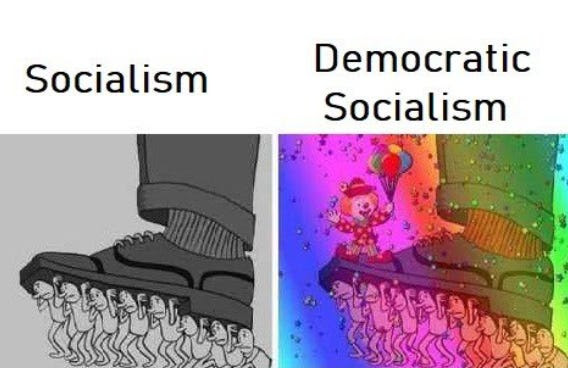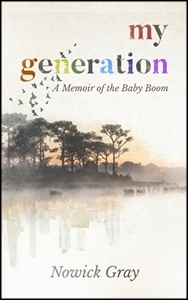A swim in the lake on a summery day in May. Baking bread and doing the dishes. Selling from a stall in the Saturday Market; buying T-shirts from the thrift store. Chatting with friends in the park; reconnecting on the phone.
They called it Pleasantville, though as the classic film of time travel back to the fifties demonstrates, living in a suburban bubble wasn’t all it was cracked up to be. Still, simple pleasures hark back to childhood, a more leisurely time.
I experienced it again in Belize in 2019, feeling like 1959. At a guesthouse on a languid shady lane, or strolling the laid-back streets of the town, with the old jalopies still around and many calm-faced youths content on one-speed bikes, front tires wandering under the sun.
My Generation, you might say, was responsible for what happened to that vision. We brought the karma to light, painted black and white with irreverent color, then slid into irrelevance as the culture carried its own momentum into a future ever distant from simple human pleasures.
Was it corporate greed to manufacture a global mall of consumers, ever more hyped on ever more elaborate scams against nature in order to turn profit for a few, who buggered off to anchor off pristine islands in million-dollar yachts, generators grinding to dull the pain?
Is it my own aging talking, bemoaning the good old days when so many believed real change was possible…
But wait, I smell a contradiction. A moment ago, wasn’t I just pining for the way it used to be? Which is it—reclaiming the past, or reshaping the future?
Back to the present…
My local “hospital” no longer is open at night. The ferries linking this island with the mainland often don’t run because they are “short staffed.” Like everywhere—the vax mandates taking out chunks of the workforce with terminated jobs and lives. There is no longer any healthy debate.
But again, perhaps my memory is clouded. Back in the day, we were not shy about shouting at our tweedy professors, berating our parents, and demonizing the “silent majority.”
The radical rhetoric and actions we activists have waged through my seven decades—from Civil Rights, Vietnam, Central America and Disarmament, to Iraq, Occupy and Standing Rock—have come back multiplied, in the social media age of manufactured “color revolutions,” “extinction rebellions,” and aggressive, top-down-funded wokery afoot in every sector of society, at once.
‘It’s been seventy-four years since George Orwell called the discourse of unchecked radical politics “duckspeak,” an empty noise like an animal’s angry quacking. Look at it and see it. We’re here. These are former people who had the political discipline to empty their minds. They succeeded.’ —Chris Bray, Train Arrives at Train Station
And we thought we were the grassroots; that was part of the con. The seductive belief you’re a part of a generational uprising, when it’s more a matter of organic history being hijacked into a socially engineered one. Or rather, the end of history and the beginning of a “thousand year Reich.”
They don’t call it “totalitarian” for nothing. It’s the ultimate hypnosis, so reminiscent of the Old Testament Jehovah, “You shall have no other gods before me.” A concept so vast, nothing can escape, not even its most heinous rebels, the Devil himself, imprisoned for life in the designated Hell realm, for his “bad choices.”

As Mussolini’s dream has come to fruition, even the “counter-culture” once deemed so virtuous, has seen its platitudes weaponized into a digital nightmare prepared for us so caringly: a strawberry-fields-forever dystopia. Fascism, Socialism, Democracy… all just aliases for The New Normal, The New World Order, the New Dawn…

Though we’ve seen this film before, we can’t say it’s the same as always—not even, as a dear friend in the ’70s was fond of pointing out, “the same only worse.”
No, this time it’s really different. This time most of the youth, as far as I can gather, has no hope (reflected in an alarming rise in “deaths of despair”). In my day you could at least share a decent apartment working part-time, minimum wage. You could run a sporty convertible, while mulling over career choices. Now, after fifty years of what one Good Citizen calls “engineering the destruction of the middle class,” it’s dad’s basement and fentanyl. Otherwise, for a few stray souls on the edges of empire, there’s the old standby, back to the land.
Since I did it then, I suppose I can do it now. Downsize, becoming recontent with a simpler life, a slower pace. Savoring sunrises, sunsets with beloved. Greeting kitties everyday, breathing with them. Walking among the old trees. Doing chores and upkeep, repairs and projects, to keep life’s machinery purring.
Soothing hurts and lending hands. Commiserating, campaigning, witnessing, withdrawing. All the motion of water, in a moon-watched day.
It’s hard to argue the fact, after a cascade of catastrophe, that our world needs a reset. The question is what kind, and decided by whom?
Here at the real grassroots, our most basic needs aren’t so complicated: “Remember, the need for clean fresh pure water, clean fresh air, whole unaltered food, safe home and prosperity is shared by all humanity” (Emily Peyton).
Unfortunately, the road back will need a sharp detour through treacherous territory. It will require, crossing, probably by foot, the premature ruins of the half-constructed superhighway to an intolerable future, patrolled by angry sensors of the State.
Paul Cudenec’s firsthand report from France causes this picture to come into clearer focus:
‘Having no affinity with ordinary French people and their wishes, the regime treats them in the way that the French state used to treat Algerians; that the British empire used to treat its subjects in India or Ireland; that the South African apartheid regime used to treat blacks or that the Israeli state continues to treat Palestinians.
‘It is not only France that is under occupation from the global empire of greed, of course. But the level of resistance here has forced this truth into plain sight, has shattered the illusion of democracy for millions.
‘This does not, in itself, represent a victory. The brute force of the occupying force is not easy to overcome in a head-on struggle, as all those brave Gilets Jaunes who lost eyes or arms on the streets know full well.
‘However, forcing the system to reveal its brutality it is a necessary step in defeating it.
‘If we are to bring down this monstrous global criminal entity, we first have to demolish the lies, fronts and facades behind which it hides, so as to reveal the full nauseating horror of its existence and its agenda.’
‘Like all vampires, it will shrivel and die in the cleansing sunlight of truth.’
Cudenec here clarifies the two most crucial characteristics of the parasitic State: on one hand, its reliance on illusion, secrecy and lies; on the other hand, its rule by brute force, the power of fear. So long as the illusions are intact, the threat of violence against us is masked, latent, internalized. But when State violence is exposed and provoked, our unconscious fear becomes conscious, our oppression undeniable, their legitimacy untenable, our outrage unquenchable, their reign unsustainable, our liberation inevitable.
This post first appeared at Nowick’s Substack, New World Dreaming. (Subscribe for free).
